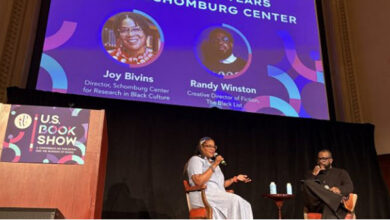Men Need Romantic Relationships More Than Women Do

I’m getting better at handling breakups. Where once I smothered the pain of losing a relationship by isolating and engaging in coping behaviors that ranged from questionable to outright destructive, now I marshal my reinforcements, calling and texting friends and family, setting up a support system, and reconnecting with my broader social network. I accumulated a lot of evidence that the first set of strategies didn’t work before I was willing to try the second set.
Reflecting on this positive development in my life, I realized that most of the women I know came to this coping strategy much earlier in their lives—or seemed to intuitively understand it from the start. Then I read a recent research article (Wahring et al., 2024) that explained both phenomena to me by simply proposing that romantic relationships matter a lot more to men than to women.
Wahring and colleagues acknowledge right out of the gate that we generally perceive the opposite: Women’s apparent obsession with romance takes center stage in endless magazine articles and romantic comedies, while media geared toward men focus very little on romantic relationships. In general, people think of romantic relationships as more important to women than to men (Hyde et al., 2009).
But the scientific literature, as Wahring and colleagues helpfully summarize it, tells a different story. Their conclusion: Men lean on romantic partners for emotional support and intimacy more than women do, which is why they put more effort into establishing relationships, benefit more from relationships, initiate fewer breakups, and have a harder time after breakups. Men behave this way, they argue, because they have fewer emotional and social supports outside their romantic relationship, relative to women, and thus are more dependent on their romantic partners to meet many of their needs.
In reviewing the literature, Wahring and colleagues build a convincing case that men are more eager to enter into relationships, citing research that shows that relative to women, men express more desire for a partner when single, fall in love more quickly, and say that they love their partners sooner (e.g., Ackerman et al., 2011; Frazier et al., 1996; Montgomery, 2005; Zsok et al., 2017). They may be motivated, consciously or unconsciously, by the fact that men in relationships are on average healthier than men not in relationships and that emotional support provided by partners may drive this pattern (Stronge et al., 2019).
Once men are in relationships, they’re less likely to end them (Rosenfeld, 2018), and the authors attribute this to men receiving a far greater proportion of their emotional support from their romantic partners than from their friends and family, compared to women. Like my recently enlightened self, they know what’s coming if they do part ways with their partner: a period of grief and personal struggle, one that research suggests may on average last longer and be more intense than what a woman experiences post-breakup (Morris et al., 2015).
Why are men in this position in the first place? Wahring and colleagues attribute this gender difference mostly to how social norms shape our social roles (Eagly & Wood, 2012). They note that boys and girls are socialized from an early age into different norms regarding self-disclosure and closeness with others. Specifically, we associate nurturing and supportive behaviors with femininity, so men learn not to be vulnerable or lean on others, while women become practiced at turning to others when distressed or in need (Taylor et al., 2000). Men name their romantic partners as their primary confidants much more often than women do (Liao et al., 2018; Umberson et al., 1996), perhaps because they really don’t feel safe turning to almost anyone else.
Knowing all that, it’s unsurprising that single men feel emptier and less complete than single women do (Dykstra & Fokkema, 2007). Men are responding to the painful reality that comes with needing more authentic and meaningful human connection than they are getting. In the face of crushing loneliness (Ernst et al., 2021; Lear & Dorstyn, 2024), they rely too much on their romantic partners—seemingly the only people to whom they can turn.
To the men who date women who might be reading: Your romantic partner cannot be everything for you. The more you lean on friends and family for support, the less likely your partner is to worry about you, to feel overwhelmed, or to leave you because you ask too much of her. The more you lean on others, the easier it will be to handle disappointments and frustrations in your relationship. If your relationship recently ended, take the opportunity to deepen connections with others; build a network that will help cushion your fall next time. If you are single, having a strong network of friends and family can protect you from jumping into a relationship with someone you’re not that compatible with merely because you want all the benefits of being in a relationship again.
Relationships Essential Reads
Facebook image: Impact Photography/Shutterstock
Source link




